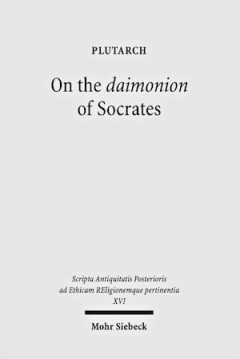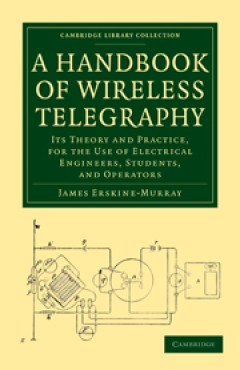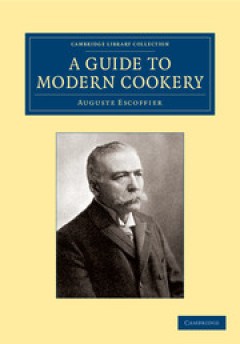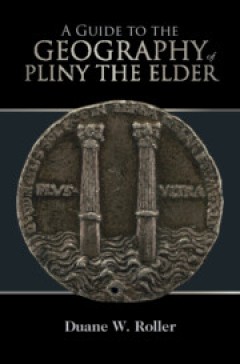Filter by

On the daimonion of Socrates : Plutarch
Plutarch's dialogue On the daimonion of Socrates is a unique combination of exciting historical romance and serious philosophical and religious discussion. The volume offers a range of essays on themes providing further insights into this masterly literary piece: on the historical, religious and philosophical background and on thematic connections with other works by Plutarch
- Edition
- -
- ISBN/ISSN
- 9783161501388
- Collation
- -
- Series Title
- SAPERE
- Call Number
- 900 DAI

A Handbook of Wireless Telegraphy Its Theory and Practice, for the Use of El…
James Erskine-Murray (1868–1927) was a Scots expert in wireless technology who studied under Lord Kelvin for six years at Glasgow University before arriving at Trinity College, Cambridge as a research student. He eventually became a telegraphy consultant and published this work in 1907. Its aim was to inform engineers, students, and radio operators about many aspects of a rapidly changing tec…
- Edition
- -
- ISBN/ISSN
- 9780511795411
- Collation
- -
- Series Title
- Cambridge Library Collection - Technology
- Call Number
- -

A Hand-Book for Travellers in Spain, and Readers at Home
Targeted at both intrepid travellers and 'readers at home', this two-volume account of Spanish history, topography and culture by Richard Ford (1796–1858) combines the rigour of a gazetteer with the humour and pace of a private travel diary. First published in 1845, as part of John Murray's series of guidebooks, the work made an immediate impact upon the reading public, and it was celebrated …
- Edition
- -
- ISBN/ISSN
- 9781139096157
- Collation
- -
- Series Title
- Cambridge Library Collection - Travel, Europe
- Call Number
- -

A Genealogy of Evil Anti-Semitism from Nazism to Islamic Jihad
Based on extensive scrutiny of primary sources from Nazi and Jihadist ideologues, David Patterson argues that Jihadist anti-Semitism stems from Nazi ideology. This book challenges the idea that Jihadist anti-Semitism has medieval roots, identifying its distinctively modern characteristics and tracing interconnections that link the Nazis to the Muslim Brotherhood to the PLO, Fatah, Hamas, Islami…
- Edition
- -
- ISBN/ISSN
- 9780511762420
- Collation
- -
- Series Title
- -
- Call Number
- -

A Grammar of the Mahratta Language To Which Are Added Dialogues on Familiar …
Marathi, an official language of Maharashtra and Goa, is among the twenty most widely spoken languages in the world. The southernmost Indo-Aryan language, it is also spoken in Gujarat, Madhya Pradesh, Karnataka, and Daman and Diu, and is believed to be over 1,300 years old, with its origins in Sanskrit. First published in 1805, this grammar of Marathi (then known as Mahratta) was compiled by th…
- Edition
- -
- ISBN/ISSN
- 9781139519847
- Collation
- -
- Series Title
- Cambridge Library Collection - Perspectives from the Royal Asiatic Society
- Call Number
- -

A Greek Army on the March Soldiers and Survival in Xenophon's Anabasis
Professor Lee provides a social and cultural history of the Cyreans, the mercenaries of Xenophon's Anabasis. While they have often been portrayed as a single abstract political community, this book reveals that life in the army was mostly shaped by a set of smaller social communities: the formal unit organisation of the lochos ('company'), and the informal comradeship of the suskenia ('mess gro…
- Edition
- -
- ISBN/ISSN
- 9780511482830
- Collation
- -
- Series Title
- -
- Call Number
- -

A Grammar of the Sungskrit Language To Which Are Added Examples for the Exer…
The Indo-Aryan language of Sanskrit is the primary language of Hinduism and also a scholarly language of Buddhism. Dating back to the second millennium BCE, it is considered to be the parent of most modern languages of India, and remains central to work in Indo-European studies, philology and linguistics today. First published in 1806, this is a comprehensive grammar of Sanskrit, compiled by th…
- Edition
- -
- ISBN/ISSN
- 9781139507264
- Collation
- -
- Series Title
- Cambridge Library Collection - Perspectives from the Royal Asiatic Society
- Call Number
- -

A Guide to Modern Cookery
The late nineteenth and early twentieth centuries witnessed a revolution in the eating habits of European households with disposable incomes. Central to the culinary history of the period is the innovative French chef Georges Auguste Escoffier (1846–1935). His cooking methods, combined with a modern approach to managing professional kitchen staff, contributed to the development of a fashionab…
- Edition
- -
- ISBN/ISSN
- 9781139626637
- Collation
- -
- Series Title
- Cambridge Library Collection - European History
- Call Number
- -

A Grammar of the Mahratta Language To Which Are Added Dialogues on Familiar …
Marathi, an official language of Maharashtra and Goa, is among the twenty most widely spoken languages in the world. The southernmost Indo-Aryan language, it is also spoken in Gujarat, Madhya Pradesh, Karnataka, and Daman and Diu, and is believed to be over 1,300 years old, with its origins in Sanskrit. First published in 1805, this grammar of Marathi (then known as Mahratta) was compiled by th…
- Edition
- Ed. 1
- ISBN/ISSN
- 9781139519847
- Collation
- -
- Series Title
- -
- Call Number
- -

A Guide to the Geography of Pliny the Elder
This is the first thorough English commentary on the geographical books of Pliny the Elder, written in the AD 70s. Pliny's account is the longest in Latin, and represents the geographical knowledge of that era, when the Roman Empire was the dominant force in the Mediterranean world. The work serves both cultural and ideological functions: much of it is topographical, but it also demonstrates th…
- Edition
- -
- ISBN/ISSN
- 9781108693660
- Collation
- -
- Series Title
- -
- Call Number
- -
 Computer Science, Information & General Works
Computer Science, Information & General Works  Philosophy & Psychology
Philosophy & Psychology  Religion
Religion  Social Sciences
Social Sciences  Language
Language  Pure Science
Pure Science  Applied Sciences
Applied Sciences  Art & Recreation
Art & Recreation  Literature
Literature  History & Geography
History & Geography